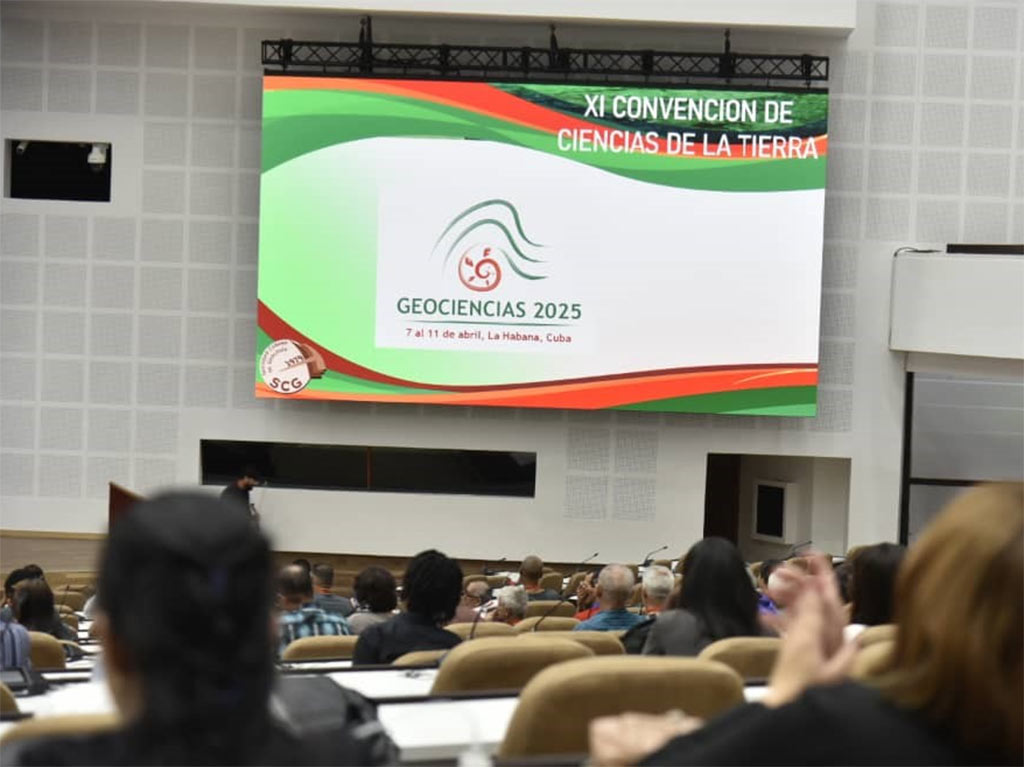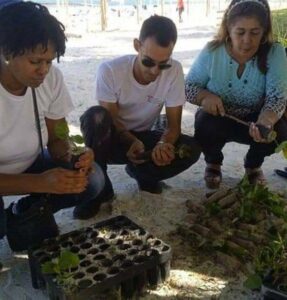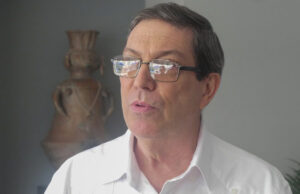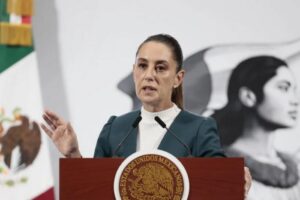A keynote lecture on the advances in geological studies in Cuba during 2025 will be the focus of attention today on the final day of the 11th Earth Sciences Convention, which brought together researchers from all over the world.
Enrique Castellanos, director of Geology at the Cuban Ministry of Energy and Mines (Minem), will present research in mineralogy, geochemistry, petrology, tectonics, prospecting of mineral deposits and geological heritage, among other aspects.
The academic programme for the final day includes another conference on the current state of oil and gas exploitation-production, given by Osvaldo López, from the Cuban Petroleum Directorate (Cupet) of the Minem.
Inaugurated last Tuesday, the Convention, held every two years, held several traditional congresses: the XVI Geology Congress, the XIII Geophysics Congress, the XII Mining Congress, the X Oil and Gas Congress and the XV Informatics and Geosciences Congress.
Delegates were able to attend excursions to Cuban geological sites, workshops and symposiums on current topics such as 3D applications, artificial intelligence, critical minerals for the energy transition, environmental impacts of mining, among the most significant ones.
At the opening, the director of National Energy Policy and Strategy of the Minem, Ramses Montes, explained to the delegates the Cuban project of energy transition to renewable sources.
Montes addressed aspects of the current energy contingency in Cuba and the strategic solutions in the short, medium and long term, and pointed out that the essence of this transition is to achieve, with the participation of society as a whole, a rapid transformation that guarantees, at the lowest possible cost and with a positive environmental impact, the sufficiency, sovereignty and security of the energy supply required for the country’s sustainable development.
He explained that at present, only four percent of electricity is generated from renewable energy sources (RES), and the idea is to reach 17 percent RES penetration by next year, 24 percent by 2030, and to achieve electricity independence by mid-century, with a 100 percent change in the energy matrix.
Under the slogan Geosciences at the service of society and development, the event took place in the capital’s Palacio de Convenciones.




